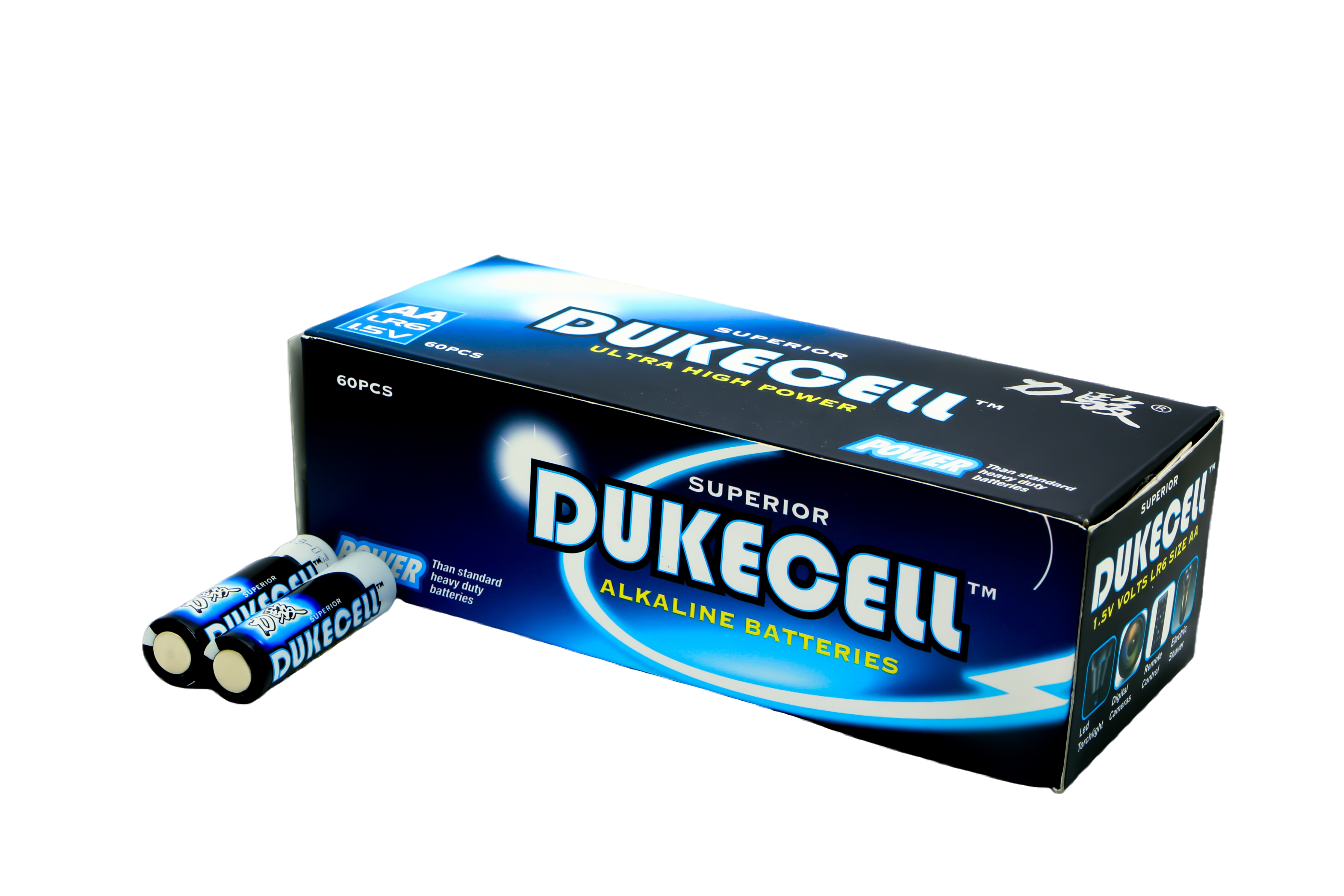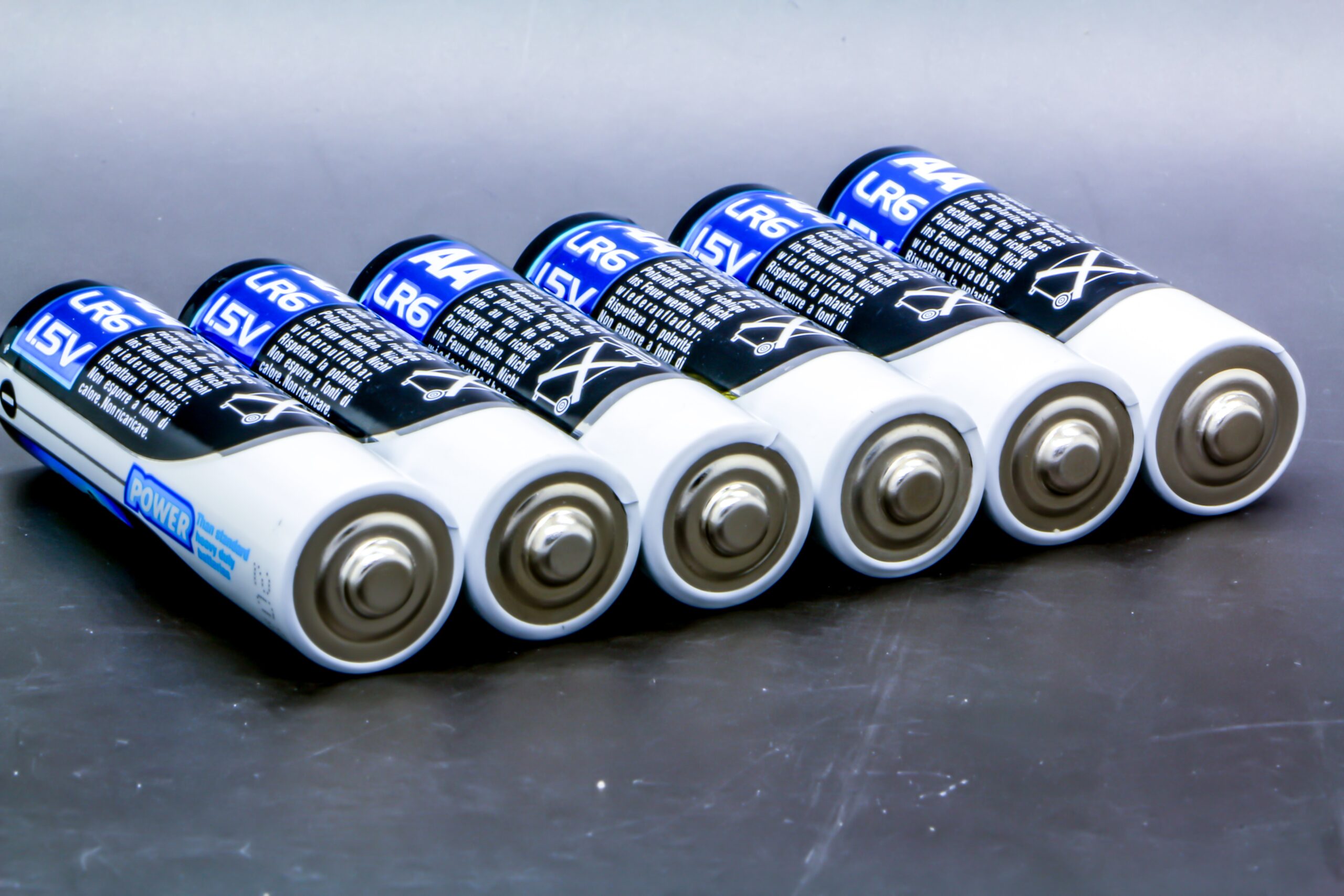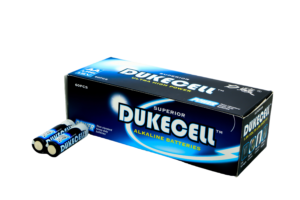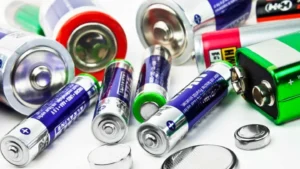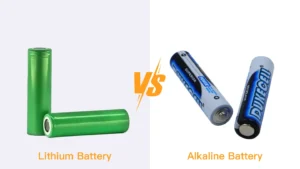Battery Life Guide: How to Maximize Battery Performance and Safety
In our daily lives, batteries are the fundamental elements that power various devices. A common question is do batteries expire and how to maximize their service life and performance. Now, let’s explore together the factors affecting battery expiration, the impact of using expired batteries, and the best practices for storage and use.

do batteries go out of date
Whether batteries will expire, that is, “do batteries go out of date,” or “do unused batteries expire” is a common concern among consumers. As a member of the battery industry, Dukecell offers a variety of battery solutions, including AA, AAA, C, D, 9V, and button cell batteries. These battery products indeed face the issue of “do batteries go out of date” during storage and use.
All batteries have a clear shelf life, known as the “expiration date on batteries,” which can typically be found on the battery packaging or the battery itself.
The battery lifespan is influenced by various factors, including the type of battery, its composition, and storage conditions. Different types of batteries hdifferent expiration times.
For unused batteries, such as lithium batteries, they will gradually lose charge due to self-discharge even when not in use, which can be considered as the batteries “do batteries go out of date.” Therefore, even unused batteries need to be replaced or recharged after a certain period to maintain their performance.
Do Batteries Have an Expiration Date?
Batteries, as a common form of energy storage devices, have always been a focal point for consumers regarding their shelf life. The answer to “Do batteries have an expiration date” is affirmative. All batteries have a clear shelf life, known as the battery expiration date, which can typically be found on the battery packaging or the battery itself.
Different types of batteries have different shelf lives. Consumers should check the production date and shelf life when purchasing batteries to ensure that the batteries they buy are within their validity period.
Regarding the question “can you use expired batteries,” while it is technically possible to use expired batteries, it is not recommended.
Expired batteries, “can you use expired batteries,” can still be used by you. Although they may still provide some power, their performance will decline. After the battery has expired, the manufacturer no longer guarantees that it will deliver the rated capacity or maintain its original performance. Using expired batteries may cause devices to malfunction or even pose safety hazards, such as battery leakage or overheating.
Understanding the shelf life of batteries is crucial for maintaining device performance and safety. All batteries have an “expiration date on batteries,” and they will gradually degrade over time, regardless of whether they are used or not.
Do batteries have an expiration date?- Here’s how expiration date on batteries pertains to different types of batteries:
Alkaline Batteries: Alkaline batteries typically come with a printed expiration date, often around 5 to 10 years from the date of manufacture.
Lithium Batteries: Lithium batteries also have an expiration date, generally longer than alkaline batteries due to their lower self-discharge rate. Lithium batteries can last 10 to 15 years in storage under ideal conditions.
Rechargeable Batteries (NiMH, NiCd, Lithium-ion): Rechargeable batteries don’t typically come with a specific expiration date but do have a limited number of charge cycles and a general lifespan.
Lead-Acid Batteries: These batteries, commonly used in vehicles, also degrade over time and have a service life of about 3 to 5 years, depending on usage patterns and maintenance.
Both alkaline and rechargeable batteries have a shelf life that significantly affects their performance. This period is commonly referred to as the battery’s expiration date, which varies depending on the composition of the battery and the storage conditions.
The best practices for storing batteries
1.In a cool and dry place
Store batteries in a cool, dry place to minimize self-discharge and chemical degradation. Avoid areas with high humidity or temperature fluctuations.
2. Original Packaging
Keep batteries in their original packaging to protect them from environmental factors and to easily check the expiration date.
3. Avoid Metal Contact
Ensure battery terminals do not come into contact with metal objects, which can cause short circuits and accelerate discharge.
4. Refrigeration
Some people store batteries in the refrigerator to extend their shelf life. If you choose to do this, ensure the batteries are in airtight containers to prevent moisture damage.
Special Considerations for Rechargeable Batteries
Charge-Discharge Cycles: Rechargeable batteries have a finite number of charge-discharge cycles. Even when not used, they can lose their ability to hold a charge due to self-discharge and chemical degradation.
Periodic Charging: Periodically charge rechargeable batteries, even when not in use, to maintain their capacity.
can rechargeable batteries go bad?
There are various types of batteries on the market today, each with slightly different working principles. Some batteries have longer lifespans than others, but they all share one thing in common: they won’t last forever and will eventually fail after a certain period of time.
Most batteries either fail within the first six months (which usually indicates a manufacturing defect unless the device has been misused or mischarged), or after several years of use, they are commonly said to fail due to “aging”.
What are the Reasons why rechargeable batteries can go bad?
Aging : Over time and with increased charge and discharge cycles, the chemical composition of the battery gradually degrades, leading to a decline in battery performance.
Electrical Short Circuit : The plates (electrodes) within a battery should not come into contact with each other. If they do, the battery or battery pack will discharge immediately and become unchargeable. All types of batteries can experience electrical short circuits in different ways.
Mechanical Degradation : The chemical reactions within a battery are physical processes, which means, like all moving parts, batteries also wear out. Electrodes in some lithium-ion batteries gradually fracture over time, while lead-acid batteries gradually shed the active paste applied to the plates because the sulfate is pushed back into the electrolyte during each charge. This degradation of internal components affects their charging capabilities until they can no longer operate the intended devices.
Overcharging and Overdischarging : Overcharging or overdischarging a battery can damage it, especially for lithium-ion batteries, where overcharging can lead to overheating, fire, or even explosion.
Physical Damage : Batteries subjected to physical damage such as impact, puncture, or deformation may suffer internal structural damage, leading to the batteries becoming dead batteries or posing safety risks.
Temperature Extremes : Using or storing batteries in extreme hot or cold temperatures can affect their chemical activity, leading to performance degradation or battery damage.
Memory Effect : Certain types of rechargeable batteries, such as nickel-cadmium batteries, may exhibit a memory effect if they are frequently charged without being fully discharged, leading to a reduction in battery capacity.
Lack of Maintenance : Some batteries require regular maintenance, such as equalization charging or periodic full charge-discharge cycles, to maintain optimal performance. Neglecting these maintenance steps can lead to the degradation of battery performance.
Manufacturing Defects : Batteries may have defects during the manufacturing process, which can cause issues during their use.
Chemical Leakage : The leakage of internal chemical substances in the battery can corrode the internal structure, affecting the battery’s performance and turning it into dead batteries.
To avoid these damages, users should follow the usage and maintenance guidelines provided by the battery manufacturers, use appropriate chargers, and handle batteries properly.
what happens if you use expired batteries?
Using expired batteries can lead to a variety of problems, depending on the type of battery (such as lithium-ion, nickel-metal hydride (NiMH), and alkaline batteries) and storage conditions. Here are some common issues:
Capacity Decrease: Over time, even without use, the chemical composition of batteries can gradually deteriorate, leading to a significant decrease in battery capacity.
Voltage Instability: Expired batteries may not be able to maintain a stable voltage output, which can damage electronic devices that require a stable voltage.
Leakage Hazards: Aging batteries are more prone to casing rupture or poor sealing, resulting in the leakage of electrolyte, which can cause corrosion damage to devices and even pose a threat to users’ health.
Increased Self-Discharge Rate: As batteries age, the self-discharge rate typically increases, meaning that batteries will lose their charge more quickly even when not in use.
Short Circuits or Overheating: In extreme cases, the chemical instability inside the battery can lead to short circuits and even cause overheating, fire, or explosion risks.
How to Avoid Accidents Caused by Using Expired Batteries ?
To avoid safety issues caused by the use of expired batteries, you can take the following measures:
Check the Date: Always check the production date and shelf life when purchasing batteries to ensure they are not expired.
Proper Storage: Batteries should be stored in a dry, cool place, away from high temperatures and direct sunlight, which helps to extend the battery storage life.
Regular Inspection: For batteries that have not been used for a long time, regularly check for signs of swelling, leakage, or other damage.
Test Before Use: Before using batteries in important or expensive equipment, perform a voltage and capacity test to ensure stable performance.
Recycling: For batteries that are obviously damaged or perform poorly, they should be recycled according to local environmental standards to avoid indiscriminate disposal.
By taking these measures, you can not only avoid the safety risks that may arise from using expired batteries but also handle batteries more environmentally friendly, reducing their impact on the environment.
Learn More About: What Are Alkaline Batteries
Innovation in battery technology, however, offers solutions to extend both the life and efficacy of these essential items. Our batteries are engineered with a unique Dual-Layer Protection Technology that not only extends the shelf life of batteries but also enhances their performance during this period. This advanced feature prevents the common leakage problems associated with battery expiration date, ensuring that even as the battery ages, it remains safe and effective for use in a variety of devices.
Navigating Expired and Out-of-Date Batteries
Understanding the battery expiration date is crucial for maintaining device performance and safety.
Firstly, it’s important to recognize that all batteries, whether alkaline or lithium, are not meant to last forever. Expired batteries may leak harmful chemicals or fail to provide adequate power, potentially leading to device malfunctions or damage. The term “out of date batteries” refers to batteries that have surpassed their optimal usage period, which is typically indicated clearly on their packaging with the battery expiration date. Despite common misconceptions, the process of battery degradation begins at the time of manufacture, not with the first use.
Do batteries expire if not used?
Batteries can expire even when not used due to self-discharge, chemical degradation, and environmental conditions.
Self-Discharge
All batteries lose charge over time, even when not in use. The rate of self-discharge varies by battery type:
Nickel-Based Batteries (NiMH, NiCd): Lose 10-20% of their charge per month.
Lithium-Ion Batteries: Lose around 2-3% of their charge per month.
Chemical Degradation
The chemicals inside batteries degrade over time, reducing their capacity and effectiveness:
Electrolyte Degradation: The electrolyte can break down. For example, potassium hydroxide in alkaline batteries can leak.
Electrode Degradation: The materials making up the electrodes can degrade. In lithium-ion batteries, the cathode material can form a solid-electrolyte interface (SEI) layer, impeding lithium ion flow.
Environmental Conditions
Environmental factors can accelerate battery degradation:
Temperature: High temperatures speed up chemical reactions, increasing self-discharge and degradation rates. Low temperatures slow chemical reactions but can temporarily reduce capacity.
Humidity: High humidity can cause corrosion and leakage, leading to short circuits and further degradation.
Best Storage Practices
To maximize the lifespan of unused batteries:
Cool, Dry Place: Store batteries in a cool, dry place to minimize self-discharge and chemical degradation.
Original Packaging: Keep batteries in their original packaging to protect them from environmental factors and to check expiration dates easily.
Avoid Metal Contact: Ensure battery terminals do not contact metal objects to prevent short circuits and accelerated discharge.
Special Considerations
Refrigeration: Some people store batteries in the refrigerator to extend their shelf life. Ensure they are in airtight containers to prevent moisture damage.
Rechargeable Batteries: These have a finite number of charge-discharge cycles. Even when not used, they can lose capacity due to self-discharge and chemical degradation. Periodic charging helps maintain their capacity.
How long do batteries last unused?
When discussing battery storage and lifespan management, the answer to this question depends on various factors, including the type of battery, storage conditions, and the quality of the battery itself.
Firstly, different types of batteries have different self-discharge rates, which directly affect “How long do batteries last unused?”. For example, lithium batteries have a relatively low self-discharge rate, losing about 10% of their charge per year, while alkaline batteries may have a higher self-discharge rate, causing them to lose power more quickly after long-term storage.
Secondly, storage conditions are crucial for battery lifespan. Ideally, batteries should be stored in a cool, dry place, away from extreme temperatures and humidity. Proper storage conditions can significantly extend the duration of battery life.
Additionally, the quality and manufacturing process of the batteries also affect their duration in an unused state. High-quality batteries usually have better sealing and material quality, which can provide a longer shelf life, maintaining good performance even after long-term storage.
Finally, even in an unused state, the chemical reactions inside the batteries will gradually proceed over time, which means all batteries have a certain shelf life. Knowing the manufacturing date of the batteries and the recommended storage guidelines can help us better assess how long do batteries last unused.
There is no one-size-fits-all answer, as it is influenced by the battery type, storage conditions, and battery quality. To ensure the battery provides optimal performance when needed, it is recommended to regularly check the storage date of the batteries and follow the manufacturer’s storage recommendations.

do batteries go bad if not used?
Can you use expiped batteries?
Do batteries “do batteries go bad if not used” without being used? The answer is yes, even if batteries are not used, they will gradually lose charge due to self-discharge and chemical degradation. All batteries undergo a natural aging process, which is caused by the gradual weakening of the chemical reactions inside the battery over time.
Additionally, the storage conditions of batteries affect their “do batteries go bad if not used.” Batteries should be stored in a dry, cool place, away from high temperatures and direct sunlight, which helps to extend teh battery shelf lifetheir. It is also important to regularly inspect batteries that have not been used for a long time for signs of swelling, leakage, or other damage.
Even if batteries are not used, they will gradually degrade over time. Therefore, it is very important to understand the storage life of batteries and handle them properly.
You can use expired batteries, but it’s important to be aware of potential issues and limitations. When batteries “expire,” they don’t suddenly stop working; rather, they gradually lose their charge and effectiveness due to chemical degradation over time. Here are some key considerations:
Reduced performance: Expired batteries often have reduced capacity, meaning they won’t hold as much energy and will deplete faster than new batteries. This can be particularly noticeable in devices that require a high amount of power, such as digital cameras or high-performance flashlights.
Leakage risk: As batteries age, they are more prone to leaking. The chemicals inside batteries can corrode the casing, leading to leaks that might not only render the battery useless but can also damage electronic devices. Leaked battery acid is harmful and requires careful handling and cleaning.
Safety concerns: In some cases, especially with lithium and rechargeable batteries, using batteries past their expiration can pose safety risks, including overheating or even causing a fire. It is crucial to monitor the condition of these batteries and replace them if they show any signs of bulging, corrosion, or damage.
Device compatibility: Some sensitive or high-precision devices might not perform accurately or could malfunction when powered by expired batteries due to inconsistent or insufficient power output.
Testing before use: If you choose to use expired batteries, it’s a good idea to test them first to see if they still hold a charge and are capable of powering your device. Battery testers can provide a quick readout of remaining power levels, or you can simply insert the battery into a device to see if it functions properly.
Batteries can go bad over time. The battery shelf life depends on its type (such as alkaline, lithium, rechargeable, etc.), how it is stored, and how it is used. Here are some key factors that can cause batteries to go bad:
Chemical Degradation: Inside a battery, chemical reactions produce the power needed to run devices. Over time, these chemicals can degrade, even if the battery is not in use, leading to reduced capacity and failure.
Self-Discharge: All batteries undergo self-discharge when not in use. This means they slowly lose their charge over time. The rate of self-discharge varies by the type of battery and the storage conditions.
Storage Conditions: Extreme temperatures (both hot and cold) can accelerate the degradation of batteries. High temperatures can increase the rate of chemical reactions within the battery, while cold temperatures can cause internal components to break down or become less efficient.
Usage Patterns: Frequent, heavy use can drain batteries quickly and reduce their overall lifespan. Rechargeable batteries have a finite number of charge cycles they can go through before their capacity diminishes significantly.
Improper Charging: For rechargeable batteries, improper charging practices (such as overcharging, undercharging, or using an incompatible charger) can reduce battery shelf life and performance.
Over time, these factors can lead to a battery not holding a charge, providing less power, or in some cases, leaking. It’s important to store batteries properly and dispose of them responsibly when they no longer hold a charge.
Read more: Are All Batteries Alkaline?
How Long Does an Alkaline Battery Last in Various Devices?
How long does alkaline battery last?
Alkaline batteries typically last between 5 to 10 years when stored properly. Here are some additional points to consider:
Factors Affecting Alkaline Battery Lifespan
1. Storage Conditions:
Temperature: Alkaline batteries should be stored in a cool, dry place. High temperatures can accelerate the degradation of the battery’s chemicals, reducing its lifespan.
Humidity: Excessive humidity can cause corrosion, which can damage the battery and shorten its lifespan.
2. Usage Conditions:
Intermittent vs. Continuous Use: Alkaline batteries used intermittently may last longer than those used continuously in high-drain devices.
Device Type: Devices with higher power demands (e.g., digital cameras) will deplete batteries faster than low-drain devices (e.g., remote controls).
Tips For Maximizing Alkaline Battery Shelf Life
1. Store Properly: Keep batteries at room temperature and avoid exposing them to extreme heat or cold.
2. Avoid Mixing: Don’t mix old and new batteries in a device, as this can cause the newer batteries to drain faster.
3. Remove When Not in Use: If a device won’t be used for an extended period, remove the batteries to prevent leakage and corrosion.
Typical Usage Duration
Low-Drain Devices: In devices like remote controls or clocks, alkaline batteries can last over a year.
Medium-Drain Devices: In items such as flashlights or toys, they might last several months.
High-Drain Devices: In high-power devices like digital cameras, alkaline batteries may only last a few hours of continuous use.
By understanding these factors and following storage and usage guidelines, you can optimize the lifespan of your alkaline batteries.
Tips for Extending Battery Shelf Life
Proper Storage: Keep batteries in a cool, dry place, ideally at room temperature.
Avoid Mixing: Do not mix old and new batteries in the same device, as this can cause the new batteries to drain faster.
Remove When Not in Use: If you won’t be using a device for an extended period, remove the batteries to prevent leakage and corrosion.
Use Fresh Batteries: Check the expiration date on the packaging and use batteries before they expire.
Factors Affecting Battery Life
Device Power Consumption: Devices with high power consumption deplete battery power more quickly than those with low power consumption.
Storage Conditions: Extreme temperatures, both high and low, can affect the chemical composition of the battery and shorten its lifespan.
Usage Habits: Compared to continuous use, intermittent use and proper storage can extend the battery’s life.
Do lithium batteries expire if not used ?
Do lithium batteries expire? Can they go bad if not used?Yes, lithium batteries can expire, and they can also degrade even if not used, although they degrade slower than many other types of batteries.
What are the factors that cause lithium batteries to expire?
Self-discharge: Do lithium batteries expire through self-discharge? Lithium batteries, both lithium-ion and lithium-metal, lose their charge over time through a process known as self-discharge. This happens even if the battery is not connected to a device. The self-discharge of lithium batteries is relatively low, generally around 1-2% per month for lithium-ion batteries and even less for lithium-metal batteries.
State of charge and storage conditions: Do lithium batteries expire if not used and stored improperly? The rate at which lithium batteries discharge when not in use can be affected by their state of charge during storage and the conditions in which they are stored. It is often recommended to store lithium-ion batteries with a state of charge of 40-50%, as this minimizes degradation and extends the life of the batteries.
Internal chemical degradation: Do lithium batteries expire if not used? Internal chemical degradation can occur in the electrolytes and electrodes of lithium batteries if they are not used for long periods. This degradation can lead to a permanent reduction in capacity, increased internal resistance, and, in some cases, the inability to hold a charge at all.
Despite these degradation processes, lithium batteries are still favored for many applications due to their long shelf life compared to other rechargeable batteries. Proper storage practices can significantly extend their usability, even when not in regular use.
First and foremost, understanding the shelf life of li-ion batteries and other lithium batteries is essential for consumers and industries that depend on efficient energy solutions. Do lithium batteries expire over time? Generally, regardless of use, lithium batteries can be utilized for 2 to 3 years from the date of manufacture, after which their performance will start to deteriorate. This decline is attributed to the slow rate of self-discharge, which is the process by which batteries gradually lose their charge when not in use. The shelf life of li-ion batteries typically exceeds that of many other rechargeable batteries, making them the top choice for applications requiring long-term, reliable energy storage.
Do li ion batteries expire if not used? While ‘expire’ might not be the most accurate term, lithium batteries do indeed lose potency over time. The rate of degradation is influenced by factors such as the battery’s quality, the storage temperature, and how well they are maintained during periods of non-use. To optimize longevity, storing these batteries in a cool, dry place and maintaining a partial charge is recommended.
How long do unopened batteries last?
Against the backdrop of the increasing popularity of modern electronic devices, batteries, as an indispensable part of their power supply, have become a widespread concern among consumers regarding their shelf life and service life. Especially for those unopened batteries, people can’t help but ask: “How long do unopened batteries be used?”
Firstly, it needs to be clarified that even unopened batteries will gradually lose their ability to store electrical energy over time. This is particularly evident in lithium-ion batteries, as they naturally discharge even when not in use.
Factors Affecting The Shelf Life Of Unopened Or Unused Batteries
Battery Type: Different types of batteries have varying shelf lives. According to professional analysis, the shelf life of a new mobile phone battery, without unpacking or charging activation, typically does not exceed 2 years. Button cell batteries can be stored for about 3 to 5 years unopened. As for AA batteries, even unopened, their shelf life is only one year, generally storable for a year.
Therefore, the type of battery plays a significant role in determining “how long unopened batteries do last” and “how long unused batteries do last?”However, it is worth noting that even under these ideal storage conditions, the battery’s charge will gradually decrease over time.
How to Maximize the Life of Unused Batteries
To ensure the longest possible usage of the batteries, please follow the requirements below:
Store in a Cool, Dry Place: Keep batteries in a temperature-controlled environment, ideally between 20°C to 25°C (68°F to 77°F).
Avoid Humidity: Moisture can cause corrosion and damage to batteries. Store them in a dry area to prevent this.
Check Expiration Dates: Regularly check the expiration dates on your batteries and use the oldest ones first.
Keep in Original Packaging: The packaging helps protect batteries from physical damage and environmental factors.
By understanding these factors and following proper storage methods, you can ensure that unopened batteries remain potent and ready for use when needed. Additionally, sensible storage and maintenance practices can effectively extend the battery’s lifespan and prevent premature expiration.
do aa batteries expire?
AA batteries, as one of the most commonly used batteries in our daily lives, have always been a focal point for users regarding their shelf life. “Do AA batteries expire”? The answer is yes. All types of batteries have an optimal period of use, and once this period is exceeded, the performance of the battery will gradually decline, eventually leading to the battery being considered “expired.”
The shelf life of batteries, also known as the “shelf life,” is related to the chemical composition of the batteries, storage conditions, and frequency of use. Even if the batteries are not used, they will gradually lose charge due to self-discharge.
The performance of expired batteries will decline, and they may not be able to provide stable power for devices, potentially causing damage to the devices. Using expired batteries may lead to devices not working properly, and there may even be safety hazards, such as battery leakage or overheating.
Do Lithium Batteries Go Bad If Not Used?
Many users wonder, “do lithium batteries go bad if not used?” The answer is nuanced, as lithium batteries can indeed degrade over time, even when not in active use. While lithium batteries are known for their long shelf life, they are not immune to deterioration.
When stored improperly, lithium batteries can experience capacity loss and reduced performance. Factors such as temperature, humidity, and the state of charge at which they are stored can significantly impact their longevity. Ideally, lithium batteries should be stored in a cool, dry place at around 40-60% charge to minimize degradation. This helps maintain their performance and ensures they are ready for use when needed.
Moreover, lithium batteries can undergo a phenomenon known as self-discharge, which means they lose charge even when not in use. This self-discharge rate is relatively low compared to other battery types, but it still contributes to the overall decline in battery health over time.
In summary, while lithium batteries are robust and can last for years, neglecting their storage conditions can lead to premature aging. To maximize battery lifespan, always store them in optimal conditions and check their charge periodically.
Conclusion
Batteries indeed have a shelf life, and all batteries have a so-called “expiration date,” which can typically be found on the battery packaging or the battery itself. Different types of batteries have different shelf lives, unused batteries, will gradually lose charge due to self-discharge, which is also considered as the battery “going out of date.” Therefore, even unused batteries need to be replaced or recharged after a certain period to maintain performance.
The shelf life of batteries is influenced by various factors, including the type of battery, its composition, and storage conditions. All batteries will gradually degrade due to self-discharge and chemical degradation, even if not used, affecting their overall lifespan. Proper storage methods, such as keeping batteries in a cool, dry place, can extend the effective life of the batteries.
Dukecell batteries feature a unique dual-layer protection technology that not only extends the battery’s shelf life but also enhances their performance during this period. This advanced feature prevents common leakage issues associated with battery expiration, ensuring that the batteries remain safe and effective for use in a variety of devices, even as they age.
